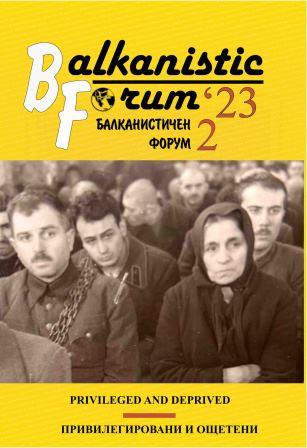The Caucasus in the 1920s – 1930s: the First Clash of the Democratic World with Russian Bolshevism and Its Consequences
The Caucasus in the 1920s – 1930s: the First Clash of the Democratic World with Russian Bolshevism and Its Consequences
Author(s): George GotsiridzeSubject(s): History, Political history, Special Historiographies:, History of Communism
Published by: ЮГОЗАПАДЕН УНИВЕРСИТЕТ »НЕОФИТ РИЛСКИ«
Keywords: Caucasus; Russian Bolshevism; Western world; Caucasian Union; winners and losers
Summary/Abstract: The paper analyzes the historical processes taking place in the Caucasus in the 1920s-1930s, which reflect the destruction of the democratic states of the Caucasus by Rus-sian Bolshevism and the efforts of the political elite of the Caucasus to restore the independence through the unification of the Caucasus. The work highlights the actors of these dramatic events and shows the influence of domestic and foreign factors on the mentioned processes. It is emphasized that the first confrontation between Russian Bolshevism and Western-type democracy took place in the Caucasus, which ended with the defeat of the latter. Based on the critical analysis of rich primary sources, emigrant press, and the records of eyewitnesses, the paper explains the reasons for the victory of Russian Bol-shevism, on the one hand, and, of the defeat of the independent democratic states of the Caucasus, on the other hand, the importance of the unification of the Caucasus to achieve common Caucasian goals is highlighted, the indifferent attitude of the West-ern states (with some exceptions) to the ongoing processes in the Caucasus and their negative role in the victory of Russian Bolshevism is shown. It is emphasized that the pursuit of a pragmatic policy, devoid of values, which was carried out by the Western World in relation to Bolshevik Russia/Soviet Union, is disastrous even for pragmatists, that collaboration with totalitarian and autocratic regimes threatens the democracy and world order based on the basic principles of the international law. Based on the reconciliation of historical events, the paper draws parallels between the political processes going on in the period under investigation and the modern world, it is demonstrated the psycho type of Russia, which does not change historically, on one hand, and the mistakes of the Western world, which contribute to its militarization, on the other hand.
Journal: Балканистичен Форум
- Issue Year: 32/2023
- Issue No: 2
- Page Range: 50-63
- Page Count: 14
- Language: English
- Content File-PDF

